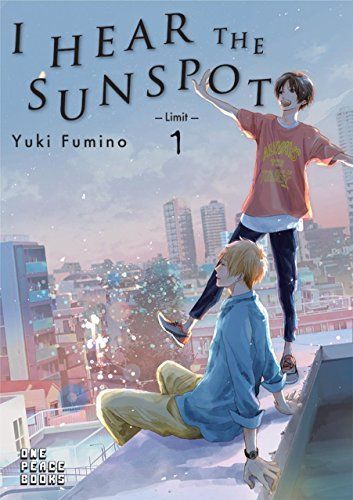
I Hear the Sunspot: Limit Volume 1: Limit
"You rescued me from a world without sound. If it wasn't for you, I never would've known the world was such an amazing place!" Because of a hearing disability, university student Kohei had made a habit of distancing himself from those around him. But after meeting the exceedingly cheerful Taichi, he gradually begins to embrace a more positive outlook on life. Kohei eventually begins to see Taichi as more than a friend, and after he finally confesses his love to Taichi, the feelings become mutual. In this new addition to the I Hear the Sunspot series, Kohei continues on as a student, while Taichi makes his way out into the working world to pursue his own calling and the two begin a new life together!
Reviews
fairuza hanun@silkcuttofu
Floofyflower@jusalilfloof
Marloes@subtlebookish
Marloes@subtlebookish
bug@bugspray
lindsey@lindseybell
Rose Stanley@roseofoulesfame
Natalie Sypeck @natcatreads
Jane The Bookaholic@thebookaholicyt
Lauren@ahgazenlovestoread
lili🎐@loverkived
🫶🏽@fruitbat
Alyson Kauffman@aly_love
Jolien De Landsheer@itsjolien
KA@solarmonks
Oliver Magnanimous@oliverm
dani@onie__e
allison chen@allisunflowerr
Zita Azlina@shenglingyuan
Zita Azlina@shenglingyuan
Zita Azlina@shenglingyuan
Zita Azlina@shenglingyuan
Lio@arks
midnightjelly@midnightjelly